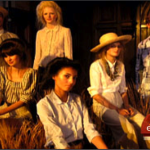Last week, Juliet Schor visited the U of M campus to give two talks about her new book, Plenitude, and her research on values-based consumption. While in town, she sat down with Jesse Wozniak for a great discussion about consumption and sustainability.
This week, we talk with Jeremy Freese about sociology and genetics. Topics include: why sociology and behavioral genetics need one another, why sociologists have been too hesitant to participate in interdisciplinary research, and how the complexities of gene-environment interdependence are stretching our imaginations as scientists and changing the way we think about causation.
If you like what you hear in this episode, this interview is part of an ongoing series on genetics, health, and sociology here at Office Hours. Past guests include Allan Horwitz, Peter Conrad, and Thomas Bouchard, with more on the way!
And the Society Page of the Week: ThickCulture’s Jose Marchial takes on Malcolm Gladwell’s take on Social Networking and Social Movements.
This episode we talk with Bryant Simon, author of the Summer 2010 Contexts culture review, Depression Chic — Shopping Our Way To Recovery. Topics include “inconspicuous conspicuous consumption”, the politics of depression in the 1930s and today, Simon’s book Everything but the Coffee: Learning about America from Starbucks, and what historians and sociologists can learn from one another.
Also, Sarah awards The Society Page of the Week to A Public Display of Emotion from Citings & Sightings.
This episode: Pepper Schwartz on baby boomers and sex, her contribution to the dating site PerfectMatch.com, and her views on doing relevant research. (Thanks to Tim Ortyl and Kia Heise for conducting the interview. An edited version appears in the Summer 2010 issue of Contexts.)
And the Society Page of the Week: Don’t Worry, Be Happy (When You Are Older) on Citings & Sightings.
Elizabeth Wissinger, author of the Spring 2010 Contexts Culture Review, The Top Model Life, tells us how the modeling world fits into the sociological world through marxism, beauty, technology and the commodification of culture.
Also, the Society Page of the Week: Text Messaging Trends on Graphic Sociology.
Linda J. Waite, author of Sexuality Has No Expiration Date from the Summer 2010 issue of Contexts, separates the facts from the myths and stereotypes about sexuality and aging.
Also: Jesse picks the first Society Page of the Week: A Tale of Two Simulacra: Market Meets Jersey Shore by Brooke Harrington on Economic Sociology.
We are now Office Hours! Listen in for an explanation behind the name change. (If you’ve already subscribed to our old contexts.org RSS feed or in iTunes, don’t worry: you will still get the new episodes. As of right now we’re still listed as “Contexts Podcast” in iTunes, but we’re working on changing that.)
This episode features a discussion with Peter Conrad, author of the Spring 2010 Contexts book review, Pills and the Pursuit of Normalcy, which reviews Happy Pills and Normal At Any Cost. Arturo and Peter start off talking about these books, but the conversation turns into a fascinating, wide-ranging discussion of the medicalization of everything from happiness to height. Other books referenced include The Loss of Sadness and The Medicalization of Society.
Edward Walker talks about his Spring 2010 feature Industry-driven activism. Topics include the role of industry in shaping the health care debate and the state of social movements in the age of the internet and astroturfing.
Hilary Levey talks to Jesse and Arturo about her Spring 2010 Contexts feature, Balloon Boy Plus Ei8ht? Children and Reality Television.
Also: check out Levey’s editorial in USA Today on the topic of Reality TV kids.
And if you don’t watch as much television as you know you should (it’s ok—we don’t judge), here are a few clips referenced in the interview:
Jon & Kate Plus 8
Cute Kids. (TLC disabled embedding).
The Breakup:
Kid Nation
NYC Prep
http://www.youtube.com/watch?v=fBA-StyktEU
This episode, Jon talks with fellow U of M sociology grad students Arturo, Shannon and Wes about the Contexts Bestsellers Project. Topics include the challenges of measuring book sales, the public perception of sociology, and how books compare with other media.




